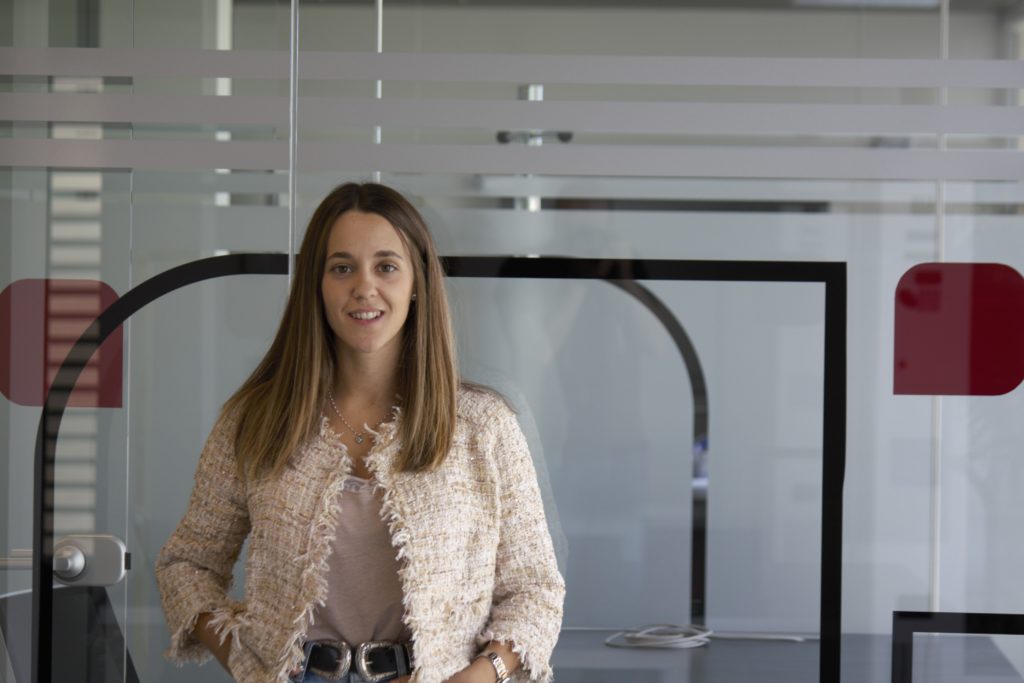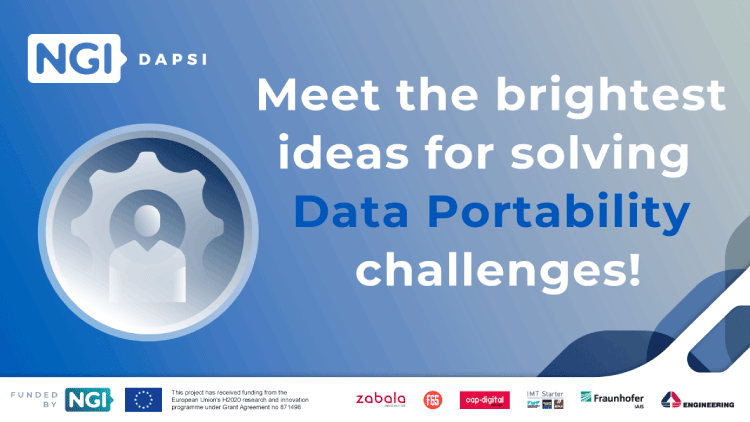Second open call results are out!
Get to know the 15 new projects supported by DAPSI.
The more promising projects for solving Europe’s Data Portability challenges have just been announced. The innovators behind them are now entering a 9-month journey aboard the EU project DAPSI – Data Portability & Services Incubator, to boost their projects.
This is the second group of projects entering DAPSI, now that the other 11 projects selected in September 2020 are getting close to the end of their incubation period. The applications for the second cohort closed on January 20th, 2021 with an impressive number of 176 submissions, coming from 39 different countries. With so many great solutions presented, the evaluation process was not easy, but ended up with the selection of 15 new high potential projects to solve data and service portability challenges.

“The 15 projects have a huge potential. They will deliver open source results with the aim of contributing to the internet community. Addressing diverse challenges, but with a common goal of making Services and Data Portability more compliant with GDPR”.
DAPSI’s Coordinator, Sara Mateo.
The DAPSI journey
DAPSI will support the selected projects through a 9-month incubation programme where experts in diverse fields will provide a successful working methodology, access to top infrastructure, training in business and data related topics, coaching, mentoring, and a vibrant ecosystem. On top of that, each DAPSI project can receive up to €150k equity-free funding.
In this two-phase programme, the teams will develop advanced solutions in the Data Portability field, to make it significantly easier for citizens to have any data which is stored with one service provider transmitted directly to another provider.
In the first phase (Kick-Start phase) they will have around 5 months to develop a solution related to a specific use case. After an assessment made by a panel of qualified experts, and based on milestones and results achieved, the teams will be invited into phase 2 (Booster phase). The use cases will then be fostered for 4 more months, to evolve into solid projects, to gain enough traction for deployment and get ready for the market.
Who’s in?

CoCEM (Sweden) – Confidential Cloud Enclaves for the Masses.
CryptPad (France) – Collaboration suite, end-to-end encrypted and open-source.
DASI Breaker (Italy) – DAta SIlos Breaker: A Semantic Open Interoperability Solution to Break Down Data Silos.
EPPD (Germany) – Delta Chat E-mail Provider Portability Directory.
fedeproxy (France) – A federation proxy for software development forges.
IDISS (Germany) – Improving Data Interoperability by bridging Standards using human-centric Semantics.
ML – Maemo Leste (Croatia and The Netherlands) – A free and open-source mobile experience.
myenergy.ai (United Kingdom) – Personal energy data service portability and innovation platform.
Orvium (Estonia) – Open access publishing platform.
PDS Migrator (The Netherlands) – Move/copy data between Solid pods and leave breadcrumbs.
pmOS (The Netherlands) – Alternative phone operating system based on Linux, which aims to give people back control of their existing smartphones by focusing on privacy, security, and sustainability.
RULEBOOK (France, Malta and Finland) – Human-centric Legal Infrastructure for Data Portability.
SCoP (France) – Secure-by-design Communication Protocols.
TDIP (Germany) – Telematics Data Interoperability Platform.
XPORTA (United Kingdom) – Improving access and portability of XMPP accounts between providers.
Follow their journey through DAPSI!
Take a look at the DAPSI project portfolio to see more information about the selected innovators.

